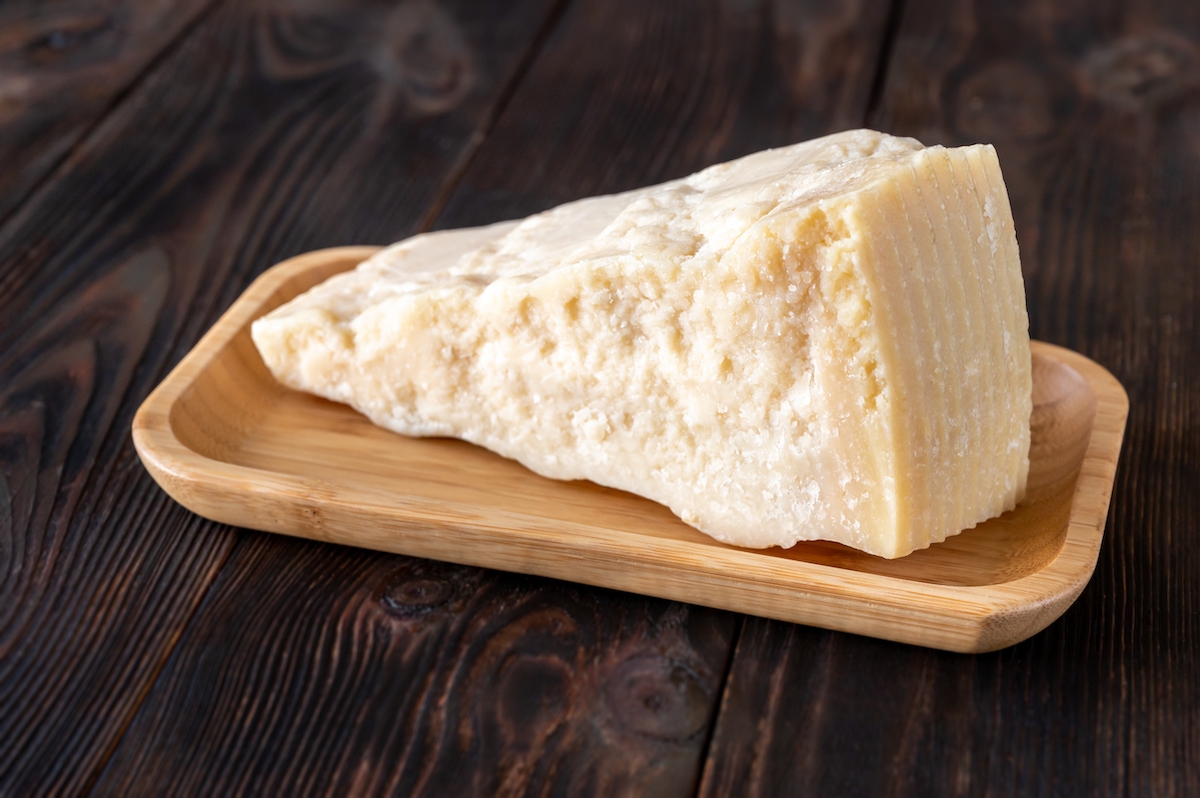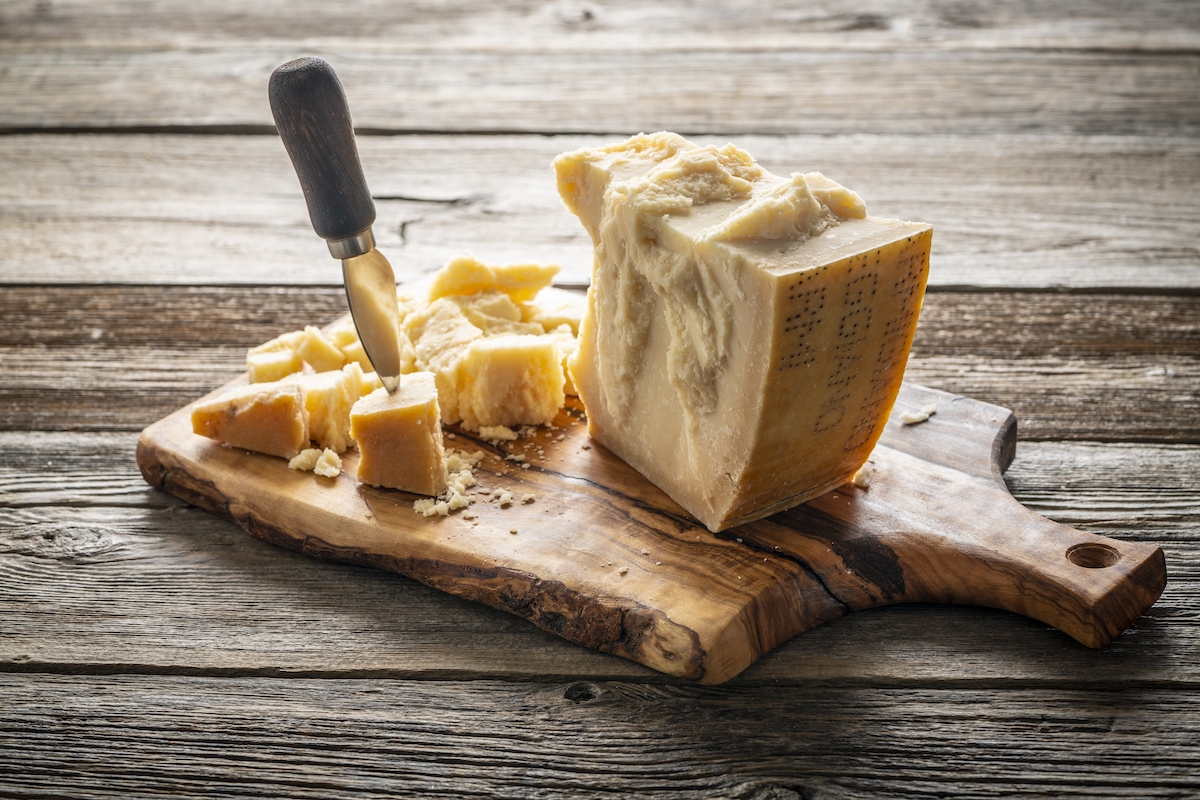Trending
People are just finding out how parmesan cheese is made
28 Jul 2023
3m
The truth of the matter is, we don’t know how a lot of the food in our fridges are actually made, and for the most part, a lot of us like it that way.
Case in point? Some people have just found out how parmesan cheese is made, and they’re finding it hard to process.
Yup, it won’t come as a surprise to most of us that parmesan isn’t vegetarian (you know, because it contains animal rennet).
However, it appears that some people are learning this for the same time.

Parmesan gets its texture from animal rennet (Credit: Getty)
“I was today years old when I found out Parmesan cheese is made from a baby cow’s stomach and I could go cry,” said one person on Twitter.
Okay, okay. Let’s dig into this.
What is animal rennet?
Animal rennet is sourced traditionally from the stomach lining of calves.
According to the Vegetarian Society: “The lining contains chysomin, a naturally occurring enzyme, which helps digestion and milk absorption.
“The enzyme is extracted from the stomach lining of the slaughtered calf, by washing and drying the lining. It is then softened in a solution of brine, or boric acid, for four-to-five days, before being ready to use.”
So, why is animal rennet used in parmesan?
Essentially, it helps the cheese to form the texture we know and love.
“For cheesemaking, rennet helps to form firm curds,” the Cheesemaker says. “Where some recipes will use acid or an acid-producing bacteria to do this, cheesemakers use rennet to better cultivate the final flavour profile of their cheese.”

Parmesan is an undisputed fave (Credit: Getty)
What other cheese uses animal rennet?
Whilst it used to be common practice to use animal rennet in a lot of cheeses, the number that contain it today is definitely lower.
Typically, you’ll find it in a few cheeses other than parmesan including:
- gorgonzola
- pecorino romano
- camembert
- gruyere
- manchego
However, it’s always worth checking the label to be sure, as ingredients can vary!
Can you get vegetarian parmesan?
Many people will happily eat parmesan with animal rennet in – after all, if you’d eat a beef burger, or any meat for that matter, there isn’t really much difference.
However, you can also get parmesan made with vegetarian alternatives like vegetarian rennet these days.
Vegetarian rennets can be made of all sorts of different things, from figs, nettles and thistles to fungi, and they can even be genetically modified.
The Vegetarian Society adds: “A high percentage of hard cheese made in the UK is produced using chymosin produced in genetically modified organisms (GMO’s).

You can get veggie parmesan, though (Credit: Getty)
“For example, chymosin can be made by the genetic modification of the yeast Kluyveromyces lacti. To do this, the genetic code, or DNA, for chymosin is isolated from calf cells.
“This DNA acts as a template. A copy is produced and is inserted into yeast cells, which are cultivated and allowed to grow in a suitable environment. The chymosin produced by these cells is identical to the animal protein and the cheese itself is not made using a GMO but rather a product of this, the enzyme.”
So, there you have it. Newsflash, most parmesan isn’t veggie.
If you are vegetarian, though, there’s no need to miss out.

.png_mudeZc?tr=w-2560,f-webp,q-70)

